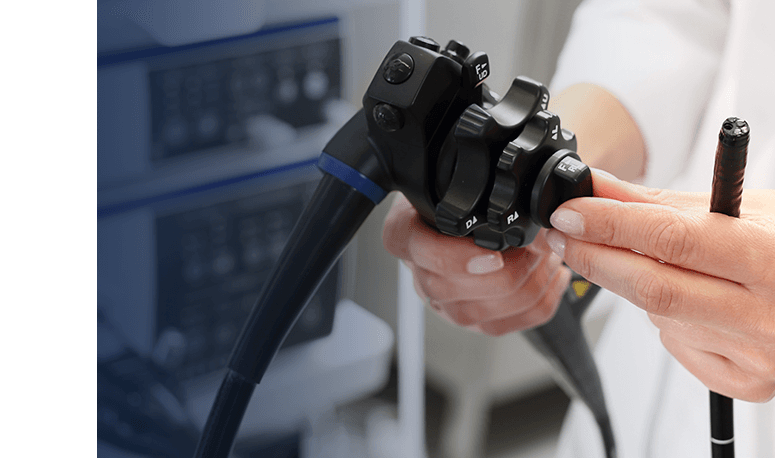When Should You Get an Endoscopy?

When unexplained symptoms like persistent stomach pain, difficulty swallowing, or frequent heartburn arise, they can disrupt your daily life and raise concerns. An endoscopy can provide valuable answers.
This minimally invasive procedure uses a thin, flexible tube with a camera to examine the gastrointestinal (GI) tract. Upper endoscopy assesses the oesophagus, stomach, and duodenum through the mouth, while lower endoscopy examines the colon and rectum through the anus.
Endoscopies aid in diagnosing conditions such as acid reflux, ulcers, inflammation, and gastrointestinal cancers, providing detailed insights for accurate diagnosis and targeted treatment.
There are several key indications for when an endoscopy may be necessary, including the following:
The Singapore Ministry of Health recommends initiating colorectal cancer screening for average-risk individuals at age 50. Early detection is crucial for identifying precancerous polyps and diagnosing cancers at an early stage, when treatment is most effective.
For younger individuals, endoscopy may still be necessary if specific risk factors are present. These include a family history of gastrointestinal cancers or persistent gastrointestinal symptoms like unexplained weight loss or blood in stool. In such cases, doctors may recommend screening before age 50 to ensure timely diagnosis and intervention.
Preparation
Before your endoscopy, follow your doctor's instructions carefully. This typically includes a period of fasting, usually starting at midnight the night before the procedure. In most cases, small sips of water or clear liquids may be allowed during the fasting period; confirm this with your doctor. Inform your doctor about all medications, allergies, and medical conditions. They may advise you to adjust your medication regimen temporarily.
During the Procedure
On the day of the procedure, the medical staff will explain the process and answer any remaining questions you may have. Depending on the type of endoscopy, you may receive sedation or anaesthesia to help you relax and minimise any discomfort during the procedure. Your doctor will discuss the options with you and address any concerns. Rest assured that endoscopies are generally safe and performed by experienced medical professionals who prioritise your comfort and safety.
Following the endoscopy, you will be monitored during the recovery period before being allowed to go home. You are advised to arrange for someone to drive you home, as you may feel drowsy or unsteady for several hours.
Aftercare and Follow-Up
Following an endoscopy, it is common to experience temporary side effects such as bloating, gas, cramping, and sore throat. Rest is crucial due to lingering sedation effects, and strenuous activity should be avoided. Most patients can resume normal activities, such as work or light exercise, within 24–48 hours, depending on how they feel.
To minimise discomfort, stay hydrated by gradually reintroducing fluids and opting for a soft diet, including yoghurt, soup, and mashed potatoes. However, seek immediate medical attention for any severe pain, fever, or persistent bleeding. It is normal to notice a small amount of blood if a biopsy was performed or polyps were removed, but notify your doctor if bleeding continues or worsens.
The timing for receiving results varies. While some findings may be available immediately, biopsy results may take several days. Your doctor will discuss the expected result timeline and schedule your follow-up appointments accordingly.
Early diagnosis plays a critical role in preventing and treating serious conditions like colorectal cancer. Regular endoscopy screenings can detect precancerous polyps and abnormalities before symptoms arise, allowing for timely intervention and significantly improving outcomes.
At Colorectal Practice, our team of skilled specialists is extensively trained in both diagnostic and therapeutic endoscopy. With expertise in minimally invasive techniques and years of experience, we have collectively performed over 10,000 endoscopic procedures. Our depth of knowledge and collaborative approach ensures high-quality care tailored to your needs. Contact us today to schedule an endoscopy in Singapore.